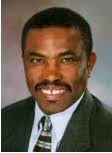By E. Leon Jacobs, Jr., Southern Alliance for Clean Energy
In today’s world, it should be obvious that the underserved among us, the meek, disabled, elderly and the poor in our society deserve special attention.
Testimonials about the economic struggles of the elderly, the chronically ill, single parents and essential workers in low and middle-income households could fill volumes. These Americans are barely eking out a living as they deal with both dramatic increases in the cost of living and, contrasted with declining personal income.
The reality is that at-risk families struggle to consistently provide for their basic needs and the COVID-19 pandemic has increased these challenges exponentially.
Low-income households – those with incomes below 200% of the federal poverty level – spend three times more of their income on energy costs than non-low-income households, according to the American Council for an Energy Efficient Economy’s (ACEEE) recent analysisof energy burdens—the portion of income paid toward energy bills.

ACEEE found stark demographic and regional disparities. Compared to white, non-Hispanic households, Black households spend 43% more of their income on energy costs, Hispanic households spend 20% more, and Native American households spend 45% more.
These steep utility bills are the result not only of electricity prices, but are compounded by inefficiencies in housing, such as poor insulation or air leaks, inefficient air conditioning and heating systems and appliances, and lack of access to both information about helpful energy efficiency programs and financial resources to implement measures that make homes more efficient, safe and secure.
Also, power bills are dramatically affected by climate change as weather patterns produce longer periods of days with extreme heat in some regions, or more days of low winter temperatures in others. Lastly, the cumulative effects of climate change disparities and historical environmental justice impacts are becoming clear, as poor and minority communities experience the “first and worst” impacts from natural disasters, and the worst response in the recovery from such disasters.
These pressures force many at-risk families to make difficult and often dangerous choices such as having to make a choice between paying a power bill or buying food and medicine. These families are at greater increased risk for respiratory diseases, chronic illnesses and increased stress, and they face greater barriers and economic hardships to moving out of poverty.
Yet, too often, in the halls of power and especially in the world of energy policy, these risks are minimized or brushed aside. These issues have persisted for many years but the economic impacts of COVID have made systemic disparities hard to ignore. According toregulatory filings, roughly 1.25 million residential customers – served by the state’s investor-owned utilities – are behind on their bills.
Florida has among the highest energy bills in the country and falls near the bottom of state rankings for capturing energy savings. Yet last fall, Florida utilities attempted to cut their energy efficiency savings goals to zero using outdated economic evaluation practices that are so antiquated no other state in the country uses them.
The Florida Public Service Commission – which just voted to allow power companies to keep disconnecting customers during the pandemic – has an opportunity to hold the state’s utilities accountable for their failure to invest in cutting energy waste.
This should be a call to action to get to the root of the problem for at-risk households. We need solutions that take seriously the true risks that high energy burdens pose not only in a crisis but each and every day.
Yet, energy efficiency programs for low-income people are scarce even though they could help reduce high energy burdens in underserved communities. These programs should include: targeting multifamily buildings with energy efficiency investments; using demographic data in program evaluation; and strengthening low-income targets and goals for utility programs.
I am deeply disturbed that policy leaders continue to dispassionately debate energy solutions for at-risk households, with no sustainable solutions. There’s really no excuse for the lack of action. We can and must do better.
Leon Jacobs, Jr., an attorney advocating for public policy that drives economic and social transformations, is past Chair of the Florida Public Service Commission and current President of the Southern Alliance for Clean Energy Board of Directors. www.cleanenergy.org
“The Invading Sea” is the opinion arm of the Florida Climate Reporting Network, a collaborative of news organizations across the state focusing on the threats posed by the warming climate.


